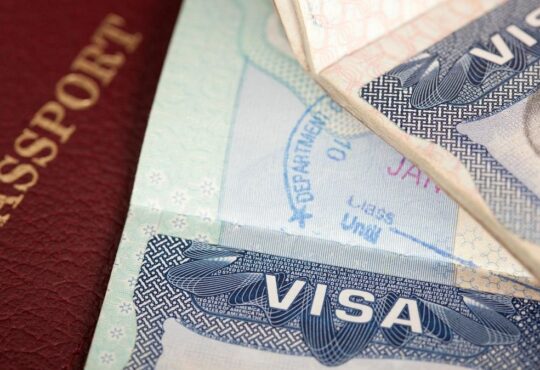
PUBLISHED : 4 Nov 2023 at 05:00
RECAP: Stocks and currencies in Asia gained in line with a weakening of the US dollar, as traders embraced riskier assets on prospects the Federal Reserve’s tightening cycle is nearing an end.
Thai shares moved in a range of 1,373.20 and 1,424.66 points before closing yesterday at 1,419.76, up 2.3% from the previous week, with daily turnover averaging 42.48 billion baht.
Institutional investors were net buyers of 3.24 billion baht. Foreign investors were net sellers of 2.6 billion baht, followed by retail investors at 546.98 million and brokers at 97.99 million baht.

NEWSMAKERS: The US Federal Reserve kept interest rates unchanged on Wednesday, and while chairman Jerome Powell left the door open to another hike beyond the current 22-year high of 5.5% he said the risks of doing too much or too little were now balanced.
- Inflation in the euro zone is falling fast and the economy has begun contracting, with a 0.1% drop in GDP in the third quarter, illustrating the dual impact of European Central Bank interest rate increases. Prices rose just 2.9% in October, moving closer to the ECB’s 2% target.
- The Bank of England left its interest rate unchanged at 5.25% as expected, the second straight pause after 14 months of increases.
- Former “crypto king” Sam Bankman-Fried was convicted of massive fraud that led to the collapse of his FTX exchange last year, following a month-long trial.
- The US personal consumption expenditure (PCE) index, the Fed’s preferred gauge of inflation, rose 3.4% year-on-year in September, higher than expected.
- Apple’s fourth-quarter profit grew 13% year-on-year, despite a 1% contraction in revenue. iPhone sales grew 3% but Mac sales fell 34%. The revenue decline was the fourth in a row as the company grapples with a sluggish Mac market and shaky demand in China.
- The Japanese cabinet approved ¥17 trillion ($113 billion) in stimulus funding to ease the squeeze from inflation. The package includes a cut in income and residential taxes by ¥40,000 per person and ¥70,000 in cash handouts to low-income households.
- The Bank of Japan on Tuesday announced further adjustments to its yield curve control policy, allowing 10-year government bond yields to increase above 1%, in a move that follows the weakening of the yen beyond 150 to the dollar.
- Nippon Steel revised its net profit outlook upward amid a tough Asian steel market, exacerbated by increased output and exports from China. The Japanese firm now expects annual profit in the year to March 31 of ¥420 billion ($2.8 billion), versus a previous forecast of ¥400 billion.
- Japan’s Government Pension Investment Fund has reported its first negative return in three quarters with an investment loss of $4.54 billion in the July-September period. The world’s largest pension fund lost 0.31% for the three months to Sept 30.
- Toyota Motor ramped up its annual net profit forecast to $26.1 billion on Wednesday after reporting that earnings more than doubled in the first six months of the year. A weaker yen and cost-cutting efforts, it said, should produce a full-year net profit of ¥3.95 trillion, up from ¥2.58 trillion forecast earlier.
- Total lending in Chinese real estate fell in the third quarter by 53.2 trillion yuan, the first decline in history.
- Chinese manufacturing activity unexpectedly dropped in October amid weak demand. The purchasing managers’ index (PMI) fell to 49.5 from 50.2 in September. Non-manufacturing PMI, which covers services and construction, dipped to 50.6, the lowest level since December 2022.
- A Hong Kong High Court judge has given crisis-hit Evergrande one last chance to come up with a new deal over its huge debts or face liquidation. A winding-up hearing, initially scheduled for Monday, was adjourned to Dec 4. The world’s most indebted property developer has more than $325 billion in liabilities.
- Malaysia’s central bank on Thursday kept its benchmark interest rate at 3%, despite a weak exchange rate and recent hikes by regional peers in the Philippines and Indonesia.
- Subsidies for electric vehicles will be reduced to between 50,000 and 100,000 baht per vehicle, from the current range of 70,000 to 150,000 baht, from 2024-27. The change was part of a broader package of incentives approved by the National EV Policy Committee. Lower import duties and excise taxes should make EVs cheaper overall, reducing the need for subsidies.
- The Tourism Authority of Thailand forecasts 2.38 trillion baht in tourism revenue this year, representing 80% of the total in 2019. It predicts 25-28 million foreign tourists will generate revenue of 1.6 trillion baht and 200 million domestic trips by Thais will generate 800 billion.
- The value of deposits under the Deposit Protection Agency to Aug 31 fell by 1.3%, the first contraction in a decade, due to a fragile economy and higher cost of living. Deposits totalled 16 trillion baht in 93.46 million protected accounts, up 3.4%.
- The government plans to sign agreements with Microsoft and Google at the Apec summit in San Francisco in mid-November to attract investment in clean energy and AI technology to support government operations and increase skills.
- The cabinet approved visa exemptions for tourists from India and Taiwan from Nov 10 to May 10, the high season for outbound travel for those countries. They can stay in Thailand for up to 30 days.
- The cabinet has approved tax cuts on every type of gasohol by 1 baht per litre, while the Oil Fund will cut another 1.50 baht per litre for gasohol 91, effective for three months beginning Nov 7.
- The Office of Industrial Economics forecasts the manufacturing production index will contract by between 4% and 4.5%, revised downward from negative 2.8% to 3.8%, reflecting a slowing world economy and weak baht.
- The cabinet on Tuesday added sugar to the list of price-controlled goods, as the impact of dry weather is expected to severely reduce the harvest and push prices upward. The Cane and Sugar Board raised sugar prices by 4 baht per kilogramme on Oct 28.
- Funds for the government’s digital wallet are now expected to be be taken from the fiscal 2025 budget, which begins in September 2024, with a 90% probability that it will use the using existing Pao-tang application, said an adviser to Prime Minister Srettha Thavisin.
- The Supreme Administrative Court has reversed a lower court ruling that rejected a suit by a consumer group against the National Broadcasting and Telecommunications Commission for allowing the merger of the mobile operators TRUE and DTAC. The Central Administrative Court has been ordered to hear the case again.
- The ratio of public debt to gross domestic product stood at 62.14% at the end of September, up from 61.78% the previous month, finance ministry data showed on Wednesday.
- Thailand’s economy is expected to grow 2.5% to 3.0% this year, unchanged from a previous forecast, helped by government support measures and tourism, the Joint Standing Committee on Commerce, Industry and Banking said on Wednesday. Exports are expected to fall between 1% to 2%.

COMING UP: On Monday, the Bank of Japan will release minutes of its last meeting and the EU will release final October manufacturing PMI. China will release October trade figures and the US will release September trade data on Tuesday. On Wednesday the EU will report September retail figures and the US will release wholesale inventories update.
- Locally, the Ministry of Commerce will release October trade and inflation data on Monday. On Tuesday, the Federation of Thai Capital Market Organizations (Fetco) will release its investor confidence index.

STOCKS TO WATCH: InnovestX Securities recommends selective buying based on three themes. First are beneficiaries of high oil prices, which have a possible upside of $5-10 per barrel. Top picks are BCP, PTTEP and TOP. Second are undervalued and oversold stocks with strong fundamentals, such as BDMS, CPALL, CPN and MINT. Finally, stocks with a good Q4 profit outlook include AP, AOT, BLA, BCH, CENTEL and KCE.
- Yuanta Securities recommends KBANK as a banking stock that has outperformed the market for the year to date. Its third-quarter results reflected improved asset quality, with both NPLs and stage 2 receivables decreasing. Fourth-quarter profit is expect to lead the sector, and the current share price is inexpensive. The brokerage also recommends GPSC, which will benefit from stabilised interest rates, a full quarter of operations from the Glow Phase 5 power plant and lower gas prices.
TECHNICAL VIEW: RHB Securities (Thailand) sees support at 1,370 points and resistance at 1,430. Krungthai XSpring sees support at 1,380 and resistance at 1,428.





